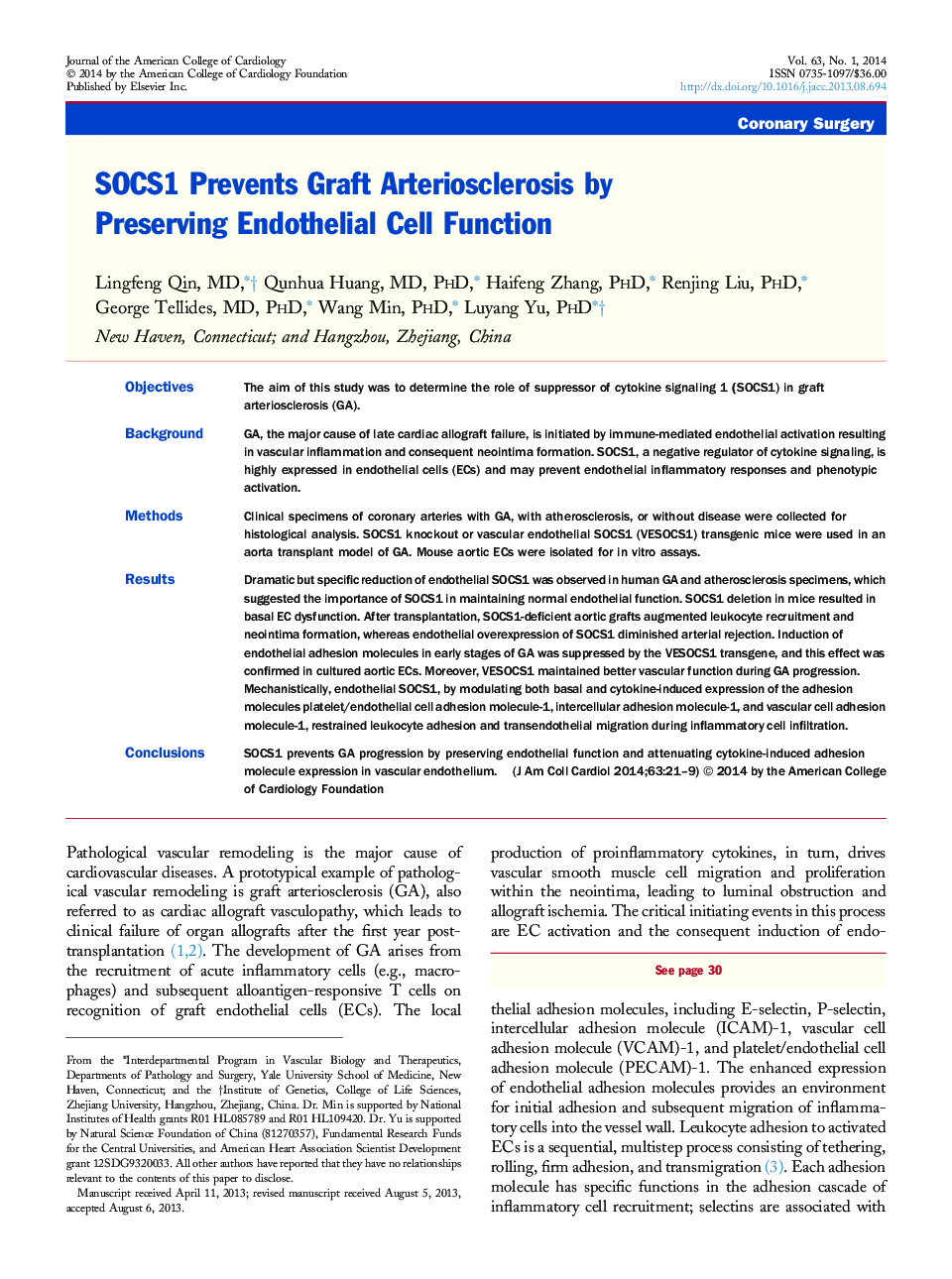| Article ID | Journal | Published Year | Pages | File Type |
|---|---|---|---|---|
| 5983335 | Journal of the American College of Cardiology | 2014 | 9 Pages |
ObjectivesThe aim of this study was to determine the role of suppressor of cytokine signaling 1 (SOCS1) in graft arteriosclerosis (GA).BackgroundGA, the major cause of late cardiac allograft failure, is initiated by immune-mediated endothelial activation resulting in vascular inflammation and consequent neointima formation. SOCS1, a negative regulator of cytokine signaling, is highly expressed in endothelial cells (ECs) and may prevent endothelial inflammatory responses and phenotypic activation.MethodsClinical specimens of coronary arteries with GA, with atherosclerosis, or without disease were collected for histological analysis. SOCS1 knockout or vascular endothelial SOCS1 (VESOCS1) transgenic mice were used in an aorta transplant model of GA. Mouse aortic ECs were isolated for in vitro assays.ResultsDramatic but specific reduction of endothelial SOCS1 was observed in human GA and atherosclerosis specimens, which suggested the importance of SOCS1 in maintaining normal endothelial function. SOCS1 deletion in mice resulted in basal EC dysfunction. After transplantation, SOCS1-deficient aortic grafts augmented leukocyte recruitment and neointima formation, whereas endothelial overexpression of SOCS1 diminished arterial rejection. Induction of endothelial adhesion molecules in early stages of GA was suppressed by the VESOCS1 transgene, and this effect was confirmed in cultured aortic ECs. Moreover, VESOCS1 maintained better vascular function during GA progression. Mechanistically, endothelial SOCS1, by modulating both basal and cytokine-induced expression of the adhesion molecules platelet/endothelial cell adhesion molecule-1, intercellular adhesion molecule-1, and vascular cell adhesion molecule-1, restrained leukocyte adhesion and transendothelial migration during inflammatory cell infiltration.ConclusionsSOCS1 prevents GA progression by preserving endothelial function and attenuating cytokine-induced adhesion molecule expression in vascular endothelium.
